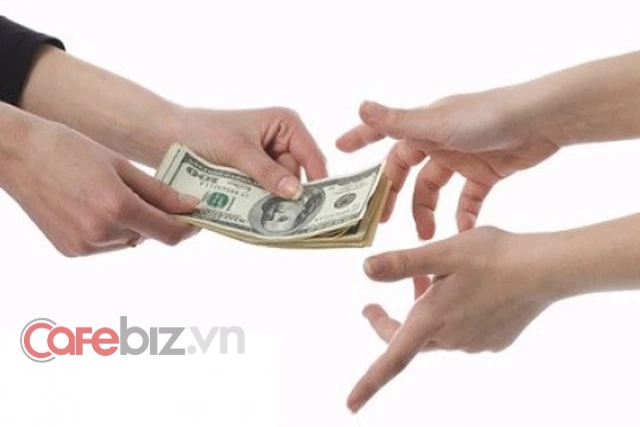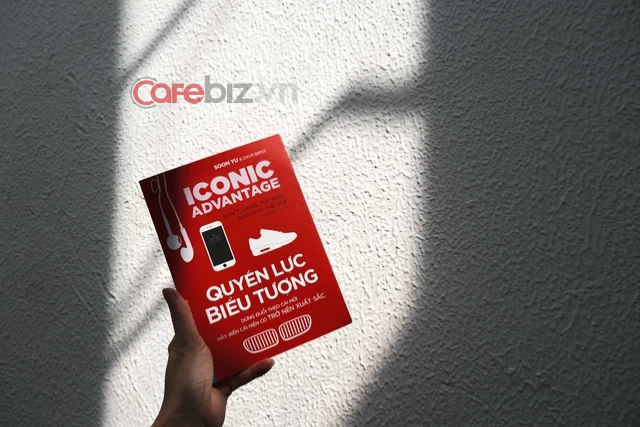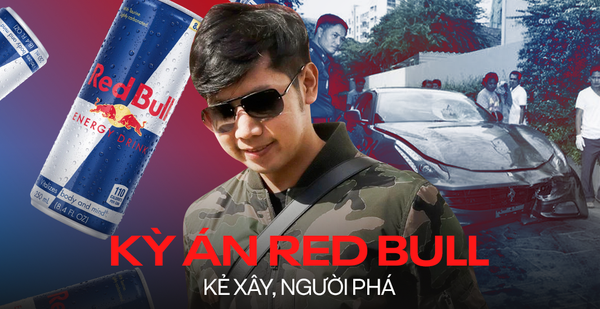‘Symbolic power’ exists in the mind of the customer and cannot be bought with money
Apple users must be sophisticated and tech-savvy people. Nike users must be dynamic, strong, enterprising people like its slogan “Just Do It”. This is the immediate impression that comes to mind when we think of brands like Apple or Nike, going beyond mere products like computers, phones or running shoes.
For competitors, these are the leading brands in the industry, but for customers, Nike or Apple not only sell good products, but also create a lifestyle for users to assert themselves. In an era where production, supply and transportation systems allow businesses to offer products in bulk at low prices, consumers have no shortage of options. However, people are willing to spend large amounts of money to pre-order products that have not yet been released of these brands.
According to the book “The Power of Symbols” by author Soon Yu, these brands not only sell what customers need, but they also create inspiration and beliefs about the model that customers want to aspire to. They reach iconic status by touching both the minds and emotions of consumers.
“Each person has a different understanding of a certain brand, depending on their own experience and what they hear from others,” said Soon Yu. Consumers are always unpredictable, and the market is always affected by many economic and political factors… So, what can businesses do to maintain their position and retain customer loyalty?

With practical experience in the field of strategy, innovation, design and branding for international names such as Van’s, Timberland, The North Face… the author emphasizes that some brands have reached iconic stature. The phenomenon is not random or lucky, but rather the fruit of sound strategy spanning decades.
Reading “Symbolic Power”, it is especially interesting that even though the content only mentions foreign brands, you can easily associate it with domestic brands, because of the model of creating a Symbolic Advantage that The author presents core values that are true for most businesses of all sizes and industries.
Don’t let your product be just a commodity
BIC and Montblanc are two pen brands in two completely different segments. BIC is a type of pens sold in all major bookstores and small stationery stores, with very low prices, consumers can buy in batches of dozens of trees, available everywhere in the home or office. In contrast, each Montblanc pen is individually contained in a box, which is a gift for people to give each other on important occasions. Montblanc is certainly a symbol of success, a high-class aesthetic. But for customers who only need convenience, among a series of mass brands, BIC is the first to appear. Means the same business but both these brands hold an irreplaceable place in the mind of the customer.
In terms of consumers’ emotions, the author mentions the Twinkies cake brand. When it was announced that Twinkies would be discontinued, many people vehemently protested. If cakes are just for… eating, why don’t they choose countless other delicious cakes that fill the supermarket? Because the Twinkies brand was established in 1930, associated with the childhood of many Americans. If this type of cake is no longer available, they will feel like they have lost a part of their memory.
When we look at a brand as a memory legacy, we remember some old names in Vietnam. For example, when it comes to Biti’s, we remember that it’s the “genuine” shoes that our parents bought us from a tight salary, the joy of wearing new shoes, the feeling of pride when bringing it to school to make friends.” cross-eyed”. Speaking of Ong Tho milk, we remember that it is a thick and sweet ingredient indispensable for the typical Vietnamese iced milk coffee. These “made in Vietnam” brands, as a phrase often used on social networks, are “national brands”.

Instead of chasing the new, improve the existing
Instead of whirling around in the race to satisfy the unpredictable and ever-changing tastes of the market, Soon Yu believes that brands need to understand the history of the business and exploit that valuable asset.
Trying to meet everyone’s needs can lead many businesses to fall into the “brutal outburst” trap. The example that the author gives is the two brands Michael Kors and Coach. From brands that lead the way in fashion, offering a wide range of products at every price point makes the brand no longer stand for anything. For discerning fashion consumers, it’s hard to accept the fact that they spend a lot of money on a high-end designer bag, only to find everyone else using bags with the same logo but much cheaper. . These brands no longer hold their position. The problem was not with the quality of the products, but rather because they had lost the coveted originality.
This is not to say that we should stick to the old ways and discard creativity. Regarding the strength in competition, the author writes: “A target that is always moving is harder to beat”. Movement here refers to continuous improvement. Once you’ve identified your brand’s irreplaceable ethos, use it as a basis for creativity.
With only Air Max technology, Nike improved from a small cushion in the heel, then added cushioning at the toe, then extended to the entire sole. With constant innovation in technology, materials and shape in each new release, Nike’s air cushioning not only provides better foot support, but also stylish designs. Moreover, this product is promoted by equally creative media campaigns. From the famous slogan “Just Do It” to the commercials featuring the world’s top sports athletes, the brand has remained faithful to their unique image: Nike is the symbol of Unlimited mental strength.
Similarly, we return to Biti’s. Vietnam with cheap labor is mainly known as an export processing factory for foreign enterprises. In that general picture, Biti’s became a bright spot when it launched the Biti’s Hunter sneaker line at the end of 2016. Thanks to its youthful and trendy design, as well as marketing campaigns integrated into music videos by young artists of great vision. With great influence, Biti’s Hunter became a craze, bringing Biti’s back to the race in the Vietnamese market. Since then, they have focused on promoting this sports shoe line as a fashion product for contemporary youth.
Of course, you can’t advertise a lousy product well, because “The customer’s mind is not a media space that you can buy with money”. Biti’s Hunter’s media campaign is a great success, but that success is based on the reputation for quality products that Biti’s has built and maintained over the decades.
Whether on an international or domestic scale, a Fortune 500 or a start-up, brand equity is the sum total of other people’s experiences and beliefs about your company, products and services. According to author Soon Yu shared in the book, Uniqueness, Familiarity, Relevancy, Quality and Popularity are the five key factors that will help businesses retain customer loyalty, achieve symbolic power and enduring over time.
According to the Law and readers
at Blogtuan.info – Source: cafebiz.vn – Read the original article here



